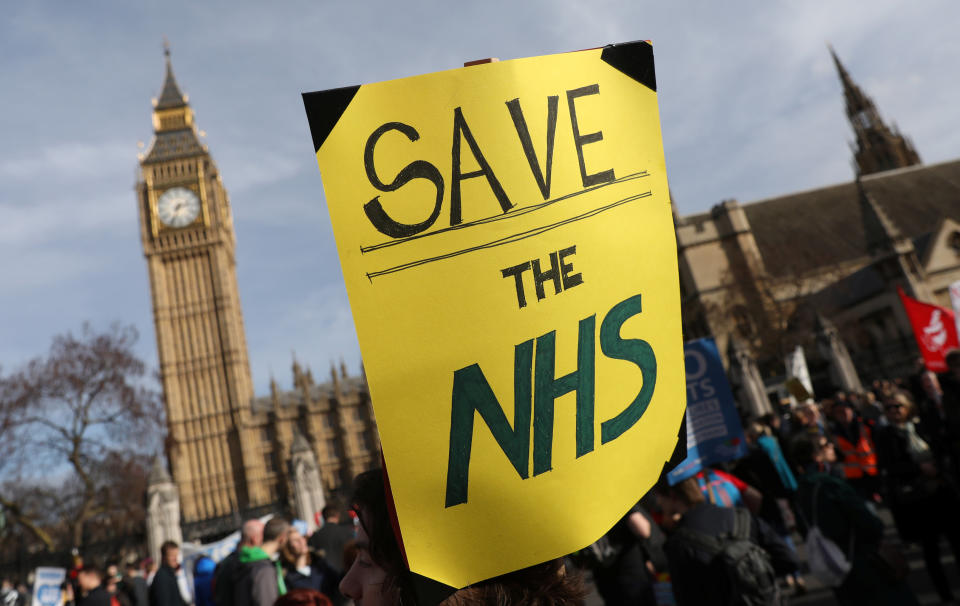What the UK needs for the NHS to survive after Brexit

During the referendum campaign, Vote Leave claimed leaving the EU would bring significant benefit to the UK’s national treasure, the NHS.
However, if that is to happen there are some vital issues that need addressing otherwise Brexit will not help the NHS but actually threaten its very existence.
For a start, the government will be distracted with negotiations over the the exit deal and then putting together trade deals with the EU and the rest of the world during a period when the NHS is facing unprecedented challenges; an ageing population, reduced resources and inadequate social care.
MORE: Three threats (and three opportunities) Brexit will bring to Britain’s businesses
The subject of funding is a key concern. Even though the ‘bus’ claim that £350 million could go to the NHS if the UK left the EU has been discredited, there could still be some extra cash once the country stops paying its contribution to the EU, which the Treasury recently calculated was £156 million a week in 2016/17.
But this may be counterbalanced by the way the UK economy will be affected in the longer term. A possible slowdown of the UK economy due to Brexit means that the NHS will struggle to preserve its recent level of funding.
The Office for Budget Responsibility forecasts that Brexit will leave a £58 billion hole in the public finances, which could lead to cuts or higher taxes or both. The NHS may have to suffer some of those cuts or at least have its budget frozen again.
At the same time, the EU has been an on-going source of funding for public services. For example, Horizon 2020 is the largest EU Research and Innovation programme of interest to the NHS with a budget agreed of nearly €80 billion available until 2020. The NHS must still have access to this so it can keep up with the technological innovations needed to cope with an ageing population.
MORE: Don’t panic – you’ll still be able to fly to Europe after Brexit
Indeed, any post-Brexit deal must serve the need for the NHS to safeguard, if not, offer additional and much-needed funding to account for the escalating costs of healthcare provision associated with an ageing population, rising demand and technological advancement.
Immigration is another key issue which may have implications for the NHS.
The NHS has long favoured an enormous craving for recruiting healthcare professionals including doctors, nurses and social care staff from abroad, including the EU.
However, recent evidence suggests that present-day recruitment of a skilled workforce is far from sufficient to meet the UK’s population needs and service demands.

Associated with this, is the issue of the single market, which has worked to harmonise standards and policies among the EU member states.
It is unclear how Brexit may affect the import of trained professionals into the NHS, a relatively straightforward process under current circumstances. Even if doctors and nurses can still be brought in from the EU, will the EU maintain the same standards of training that the UK needs, will their path diverge in the future? The UK will have no influence over this after Brexit.
MORE: 5 things the UK needs for a ‘Green Brexit’
It follows, again, that with Brexit a fait accompli healthcare leaders and policymakers need to safeguard the current and future workforce requirements to meet spikes in demand.
This means the government has to either maintain existing arrangements related to the import of skilled manpower from the EU member states or look for alternative solutions.
Two of the main issues related with Brexit are the economy and immigration and as we can see both can affect the NHS in many ways, which could be exceedingly disruptive in the longer term.
Careful planning and strong leadership is needed as Brexit negotiations move forward to ensure the survival of the NHS.
Dimitrios Spyridonidis is an Associate Professor of Leadership at Warwick Business School and researches leadership and management in the NHS.

 Yahoo Finance
Yahoo Finance 

